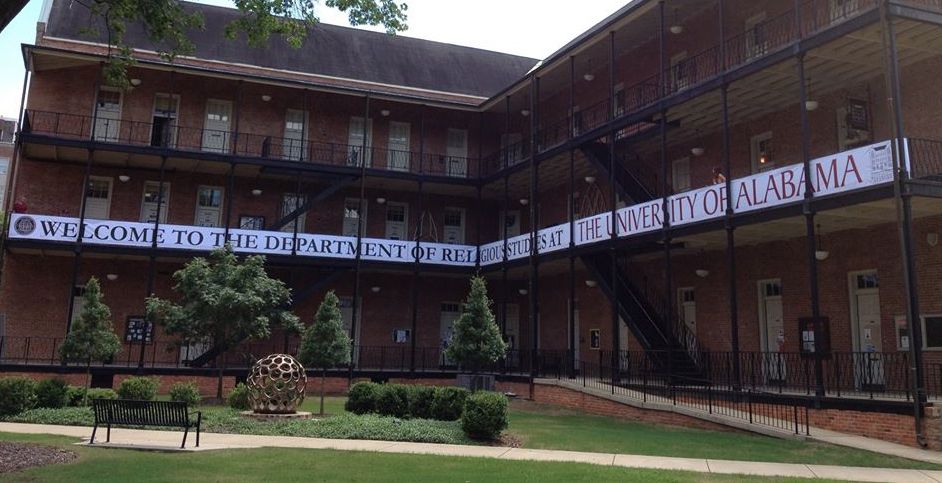 As a little kid in the early 1960s, I guess I decided that the hooded sweaters I sometimes wore made me look like Dino the dinosaur — you know, from “The Flintstones”? I don’t think we had a specific name for them yet — at least we didn’t call them “hoodies,” as people do now. Instead, opting for brutal descriptivism (which sounds like a 1960s architectural movement), I’m guessing that we just uncreatively called them “hooded sweaters.” Continue reading “Denaturalizing the Natural”
As a little kid in the early 1960s, I guess I decided that the hooded sweaters I sometimes wore made me look like Dino the dinosaur — you know, from “The Flintstones”? I don’t think we had a specific name for them yet — at least we didn’t call them “hoodies,” as people do now. Instead, opting for brutal descriptivism (which sounds like a 1960s architectural movement), I’m guessing that we just uncreatively called them “hooded sweaters.” Continue reading “Denaturalizing the Natural”
Using Four-Lettered Words: Part One

“What Justice Kennedy has undertaken in this initial statement of fact, or more properly, of data, that is to say, facts accepted for purposes of the argument…”
– Jonathan Z. Smith, “God Save This Honourable Court” (Relating Religion, p. 382)
While she was on our campus a few weeks ago, I noticed Monica Miller using the word “data” to refer to the things that she studied — things such as African American religion, scholars of African American religion, rap lyrics, and rap artists — and so I asked her a question or two about what she thought was entailed in that word and why she seemingly opted for it rather purposefully in both her public lecture, the evening before, and then during an informal lunchtime discussion with our students the next day. And then, just the other day, Leslie Smith posted on this site, using this four-lettered word in her post’s title — a use that did not go unnoticed by some on Facebook who soon were debating what was termed the dehumanizing effects of such objectifying terminology. Continue reading “Using Four-Lettered Words: Part One”
Studying Religion by Not Studying Religion? Notes from the Field
 This month, I had the honor and privilege of delivering the endowed inaugural Day Lecture (in honor of Zachary Day who was a religious studies major at The University of Alabama before he passed) on religion in popular culture for the Department of Religion where scholar of religion Russell T. McCutcheon is currently Chair. I was struck by and in awe of the intellectual energy there among students who major and minor in religious studies. Not just that they were studying religion, but how they were thinking about the academic study of religion in their own specialties of interest. As someone who has spent the last three years teaching religion on both the undergraduate and graduate levels, and very much interested in the ongoing conversations regarding the “crisis” in the humanities and “decreasing interest” in fields such as religion, it strikes me that getting students to see the utility in and broad possibilities of something like the academic study of religion might rely upon how we as scholars, or departments, for example, demonstrate not so much what religion is but how studying religion might assist in exploring a wide variety of data in the social world – such as claims to identity and difference. The latter, in part, relies upon how we both mark (and market) the academic study of religion, perhaps away from a static and self-evident “thing” (over there) towards a notion of religion as more of an “anthropological enterprise” – a social process – a human doing and making. Continue reading “Studying Religion by Not Studying Religion? Notes from the Field”
This month, I had the honor and privilege of delivering the endowed inaugural Day Lecture (in honor of Zachary Day who was a religious studies major at The University of Alabama before he passed) on religion in popular culture for the Department of Religion where scholar of religion Russell T. McCutcheon is currently Chair. I was struck by and in awe of the intellectual energy there among students who major and minor in religious studies. Not just that they were studying religion, but how they were thinking about the academic study of religion in their own specialties of interest. As someone who has spent the last three years teaching religion on both the undergraduate and graduate levels, and very much interested in the ongoing conversations regarding the “crisis” in the humanities and “decreasing interest” in fields such as religion, it strikes me that getting students to see the utility in and broad possibilities of something like the academic study of religion might rely upon how we as scholars, or departments, for example, demonstrate not so much what religion is but how studying religion might assist in exploring a wide variety of data in the social world – such as claims to identity and difference. The latter, in part, relies upon how we both mark (and market) the academic study of religion, perhaps away from a static and self-evident “thing” (over there) towards a notion of religion as more of an “anthropological enterprise” – a social process – a human doing and making. Continue reading “Studying Religion by Not Studying Religion? Notes from the Field”
“Nobody Joins a Cult”
 My ear caught a line in a TV show last night:
My ear caught a line in a TV show last night:
Look, nobody joins a cult. Nobody joins something they think is going to hurt them, or anyone else. You join something with people that you really like. People you believe in. Don’t you? Continue reading ““Nobody Joins a Cult””
